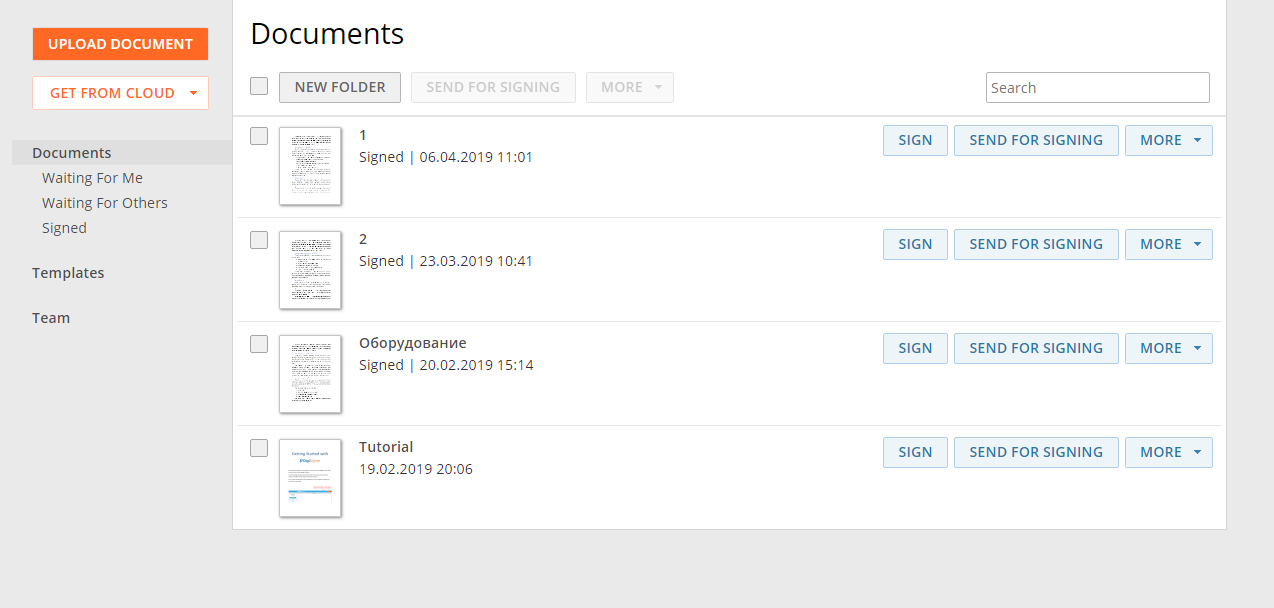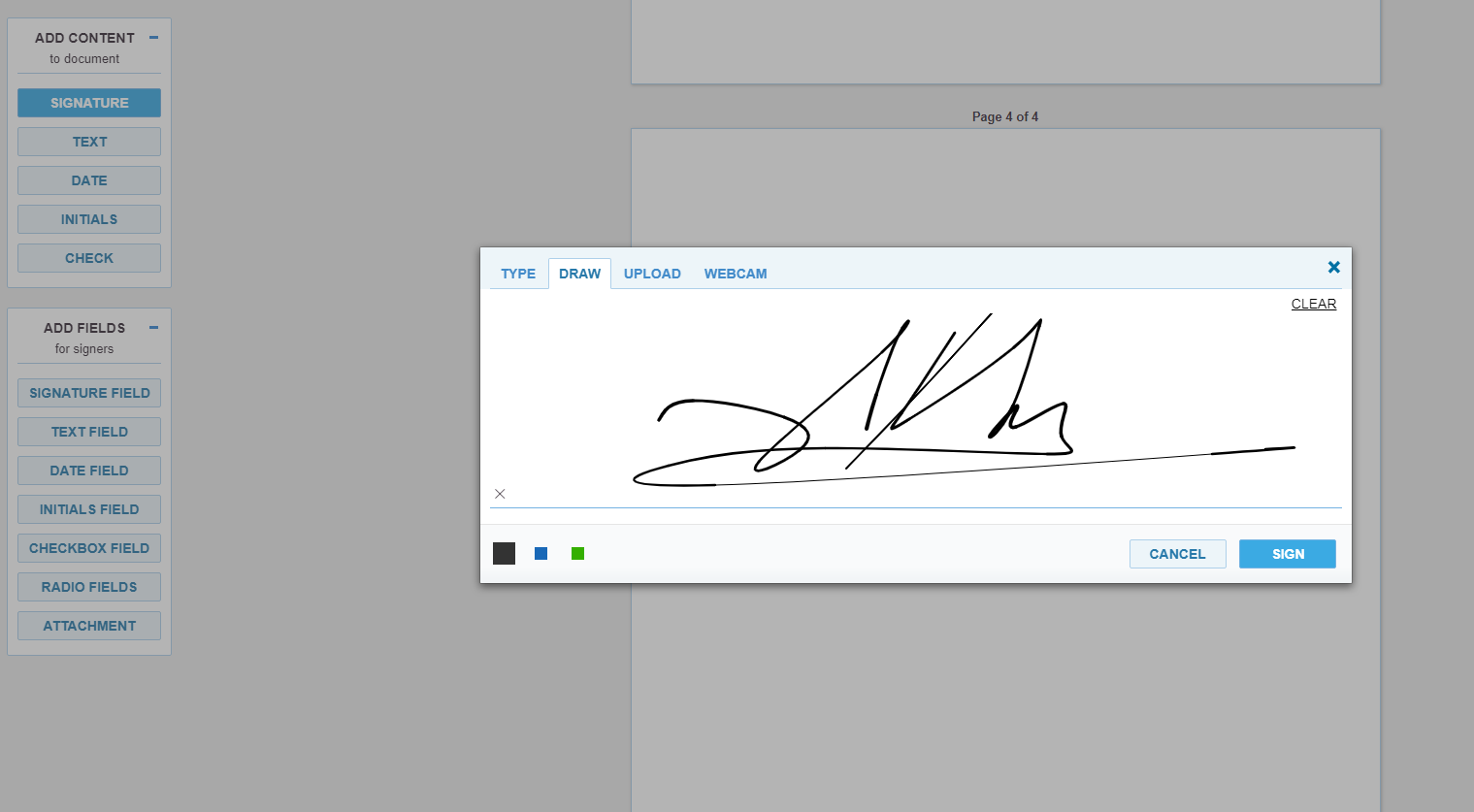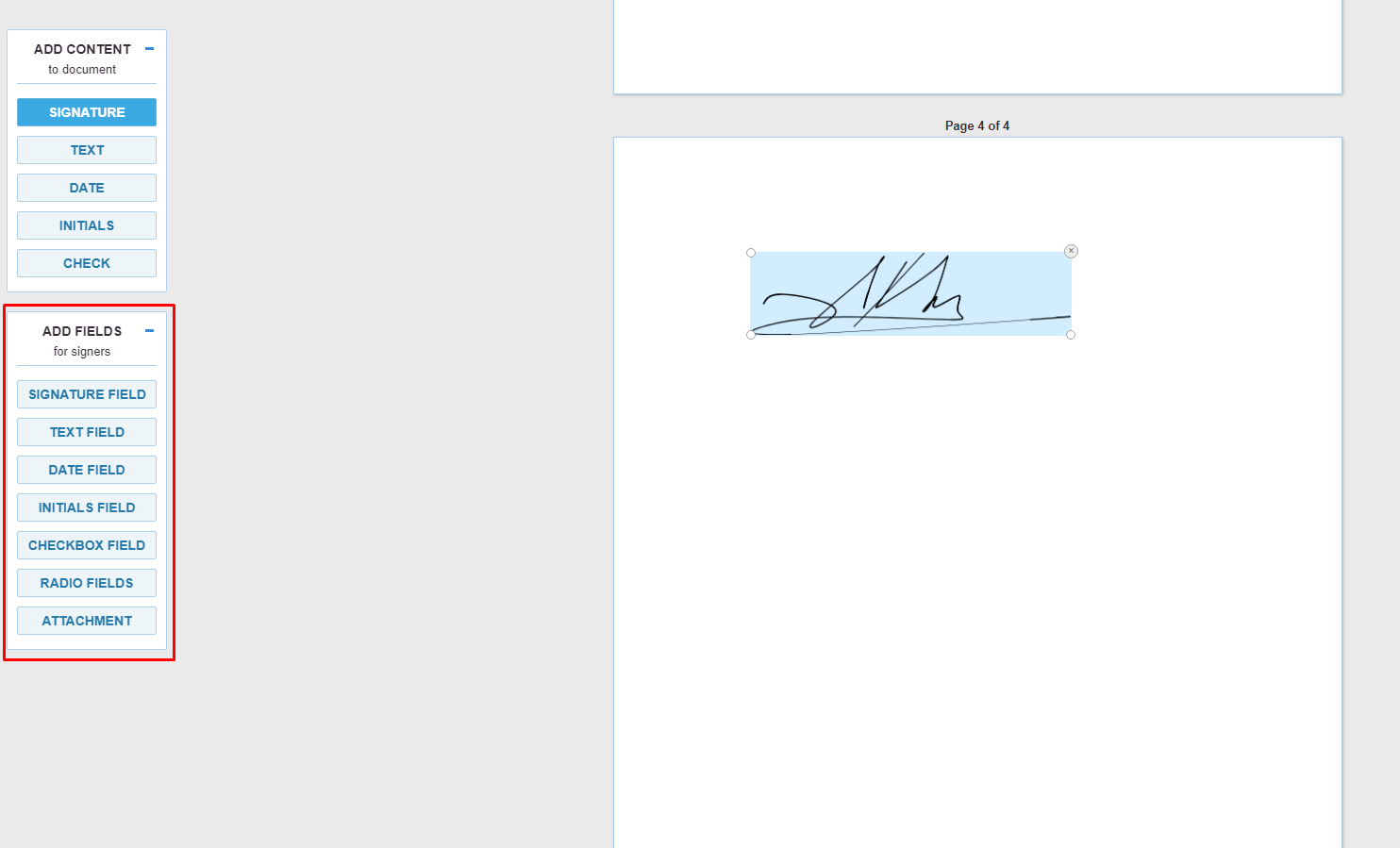Electronic technologies make it easier to keep records and agreements, as well as integrate elements of electronic commerce into their operations. Texas, like many large states, is also subject to a unified law on conducting and regulating electronic transactions.
DigiSigner eSignature legality in Texas
DigiSigner is an electronic signature service that allows you to remotely sign documents and enter into contracts, even if the two parties to an agreement are at different ends of the planet. The signatures delivered in the service comply with all the requirements of the law on electronic document circulation in Texas.

Select the document to be signed and send it to the second party if it should leave the details first. The document returned with the signature will be in the Waiting for Me folder. To leave your details, click Sign.

The service allows you to choose different versions of electronic signatures – from handwritten, left with a mouse or touchpad, to an image downloaded from the device.

You can create templates if you need to sign the same type of paper regularly. For example, enter the name, position, date of signing and the signature itself. In the future, the finished template can be inserted into the document in the desired area. Accelerate your work with electronic signatures with the help of a simple and understandable DigiSigner service.
Texas Electronic Signature Act
The 77th Texas legislature passed the UETA Electronic Transactions Regulation Act, which entered into force on January 1, 2002 — Chapter 43 of the Texas Commercial and Employment Code. Under federal laws, UETA is a legislative act that can change, limit or replace the provisions of the basic law on electronic signature in global and national trade, adopted at the federal level. UETA is based on the use of electronic signatures and records in public and personal documents. UETA’s Texas Edition regulates electronic transactions in the following ways:
• Signature or record cannot be deprived of legal force or the need for enforcement only because they are made electronically.
• The contract has full legal force and is subject to enforcement if an electronic signature is used to form it.
• If the law states that the signature must be in writing, the electronic version meets the law.
• If a signature is required in a document, its electronic version meets the law.
According to UETA, an electronic signature is a sound, symbol or image attached or logically associated with a record, performed or accepted by a person to sign a document. The law also provides for electronic notarization. Therefore, individual insurance transactions can be carried out by electronic means.
Other electronic acts in Texas
All operations covered by the UETA Texan edition are subject of other applicable laws, including the following requirements:
• Electronic transactions must comply with the confidentiality requirements of the GLBA Federal Law, the law on mobility and accessibility of insurance, as well as the relevant state rules and laws.
• Any legal or natural person who wants to do business in the insurance industry in Texas must obtain a management license.
• Online purchase insurance or other regulated products in Texas must comply with state laws and regulations.
Also, products sold in electronic commerce must comply with the following requirements specified in the law:
• Conditions for free viewing periods.
• Requirements for formatting, page layout and font size.
• Prior approval requirements: file is subject to review and approval if it is commercially beneficial.
Although transactions can be carried out electronically, the law provides that the use of electronic signatures is voluntary. According to the Texas edition, the law does not require that a record or signature be created, sent, transmitted or stored in a specific way or used in electronic form. A person who has agreed to conduct a single transaction electronically may refuse to conduct subsequent operations in the same type.

